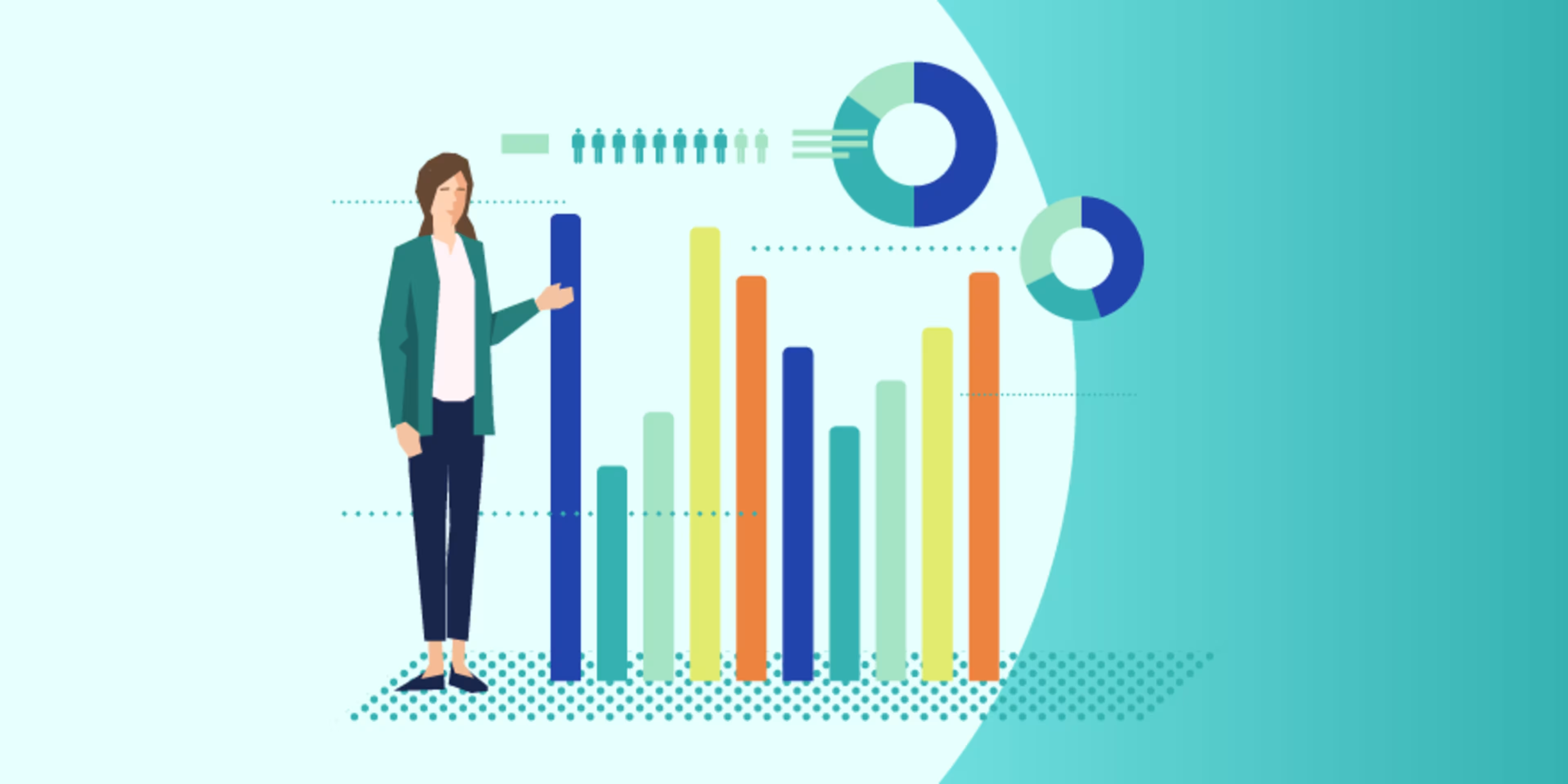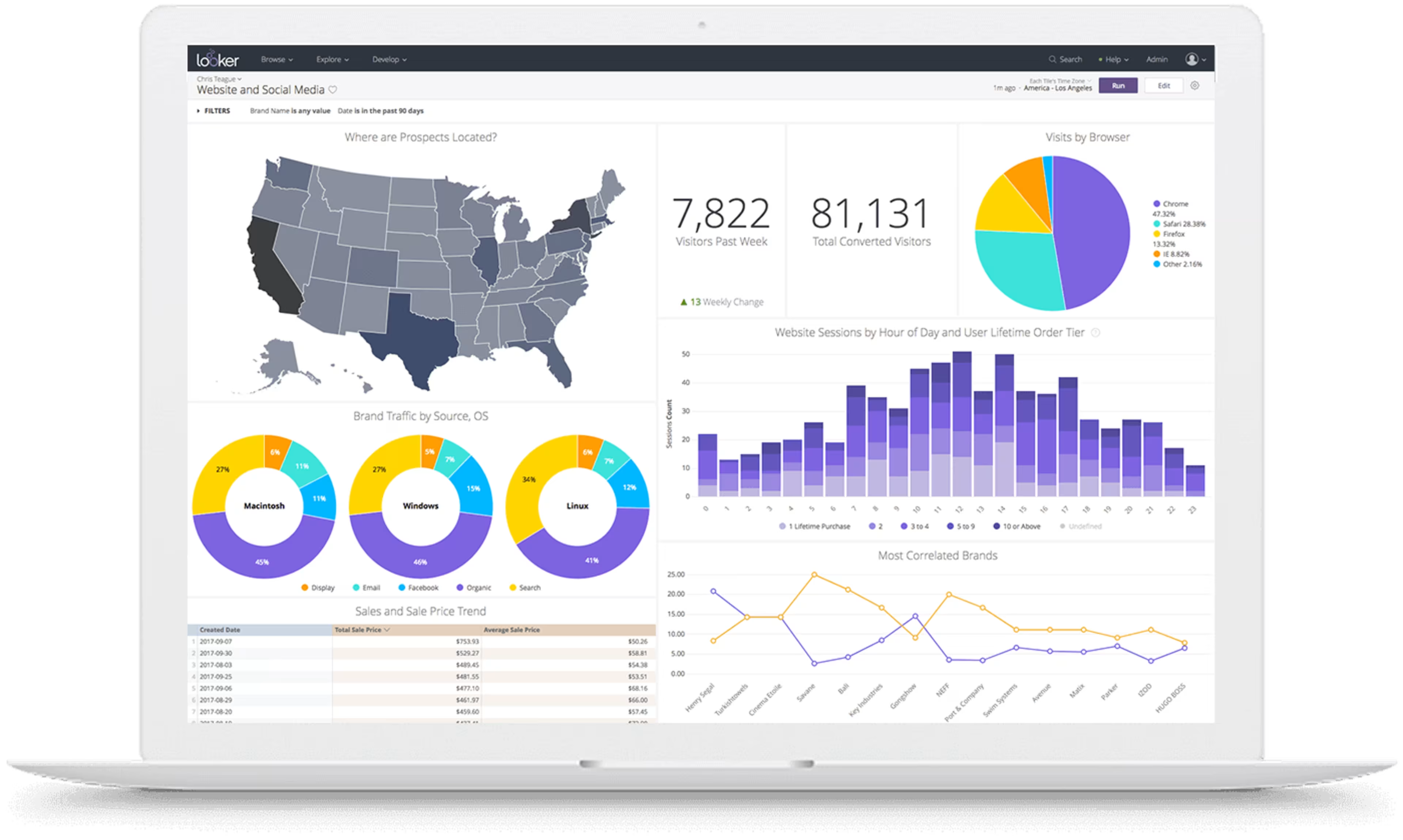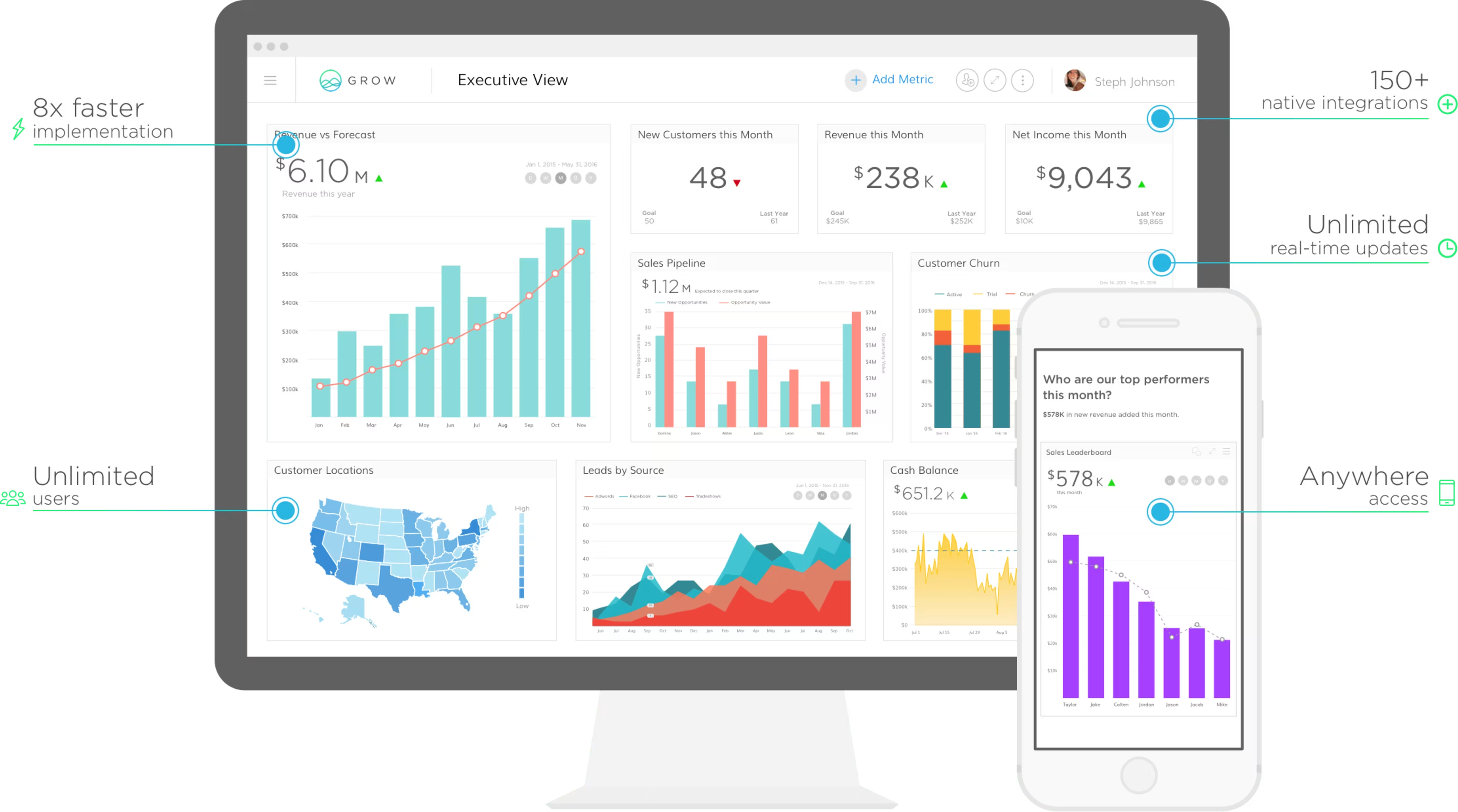Within one hour of waking up—before I even leave the house—I've created more data by walking around than the Apollo ship created when it landed on the moon.
This isn't because I'm industrious (though I am, once I get rolling). It's because my smartphone tracks my steps. And my pace. And my elevation change. And a lot more.
If I generate this much data getting ready for the day, think of how much data your small business generates in an hour of activity.
The downside of this? All that data can be hacked or misused (Facebook's recent election-related woes come to mind).
The (bigger) upside? All that data isn't just valuable to bad actors. It's worth more to you ... if you know how to use it in data-based decision-making.

What is data-based decision-making?
Data-based decision-making (also called data-driven decision-making) is something you've already been doing for years.
Ever compared the prices of two products when shopping? That's data-based decision-making, on a micro scale. Data-based decision-making on a macro scale can save you even more money.
Every click on your website, every email you send, every swipe of a credit card, generates data. Data-based decision-making is using this data to make better decisions.
It's also a way to future-proof your business. Everything you do today creates data, but everything you do in the next ten years will only create more data.
This coming data deluge is referred to as Industry 4.0, the next evolution in business, and you need to be ready for it.
But, being data-driven isn't easy, either on your own, or across an entire small business. If you collect even a handful of data sources, then sharing that information among people and making sure you're all on the same page is tough.
That's where business intelligence software can help. The right BI tool, coupled with the right data-driven habits, can turn your data into an asset. Below, I'll show you how two businesses turned to data-driven decision-making with the help of BI software.
How data-based decision-making turns data into money
Data-based decision-making helps Kiva convince investors to put money into their business. Kiva is a micro-loan provider in the third world and uses business intelligence software from Looker to increase funds available to businesses in the developing world.

A Looker dashboard (via Looker)
Kiva employee Bennett Grassano explains that, “With Looker, we were able to slice data in different ways and pull together the data relevant to our work."
Doing so helps Kiva know which efforts are actually working.
Looker makes it easy to access different sources of data, such as online behavior and transaction data. When employees can access all those data sources easily, they have more information they can use to convince potential investors that their loans are a worthwhile investment. Kiva can show that loans that seem high-risk to investors are far more solid than they appear.
How data-based decision-making saves money
With business intelligence software from Grow, Sebo Marketing makes data-based decisions, which, in turn, saves them money.
Grow organizes Sebo's data, so employees spend less time looking for the information they need and more time using that information to make data-based decisions. With the necessary data at hand, employees can focus more energy on "big picture thinking" than on the rote work of collecting data.

A Grow dashboard (via Grow)
Better yet, this change in focus has lowered Sebo's payroll percentage, because employees can serve more customers in the same amount of time.
Better yet than that, the benefits that Sebo got from data-based decision-making are ones that you can have too—your small business is just as capable as any when it comes to becoming data-driven. Read on to find out how.
Culture and software are the base for data-based decision-making
Business intelligence software helps enable data-based decision-making, but it's not the first step in data-based decision-making.
The first step is cultural: getting your business to think in a data-driven fashion. If your company's culture doesn't think in a data-driven way, those business intelligence tools will be the digital equivalent of exercise equipment you buy, then use as an impromptu coat rack.
Gartner analyst Alan Duncan has written extensively about making the change to data-driven thinking (full research available to Gartner clients).
Here're four ways he suggests you prime your business culture for data-based decision-making:
Encourage data-driven thinking: When someone offers an opinion, ask what data they have to back it up. When someone makes a suggestion, ask what data they have to back it up. Let your employees know you want them to think this way, reward successful data-driven thinking, and, most of all, be data-driven yourself.
Know what decisions you want to make before you get into data-based decision-making: First, know business problems you want to solve, or business processes you want to improve. Then, look for the data that helps you solve those problems, or improve those processes. Data-based decision-making is a way of thinking and doing business, not a replacement for either.
Hire data-driven people: When you're hiring, look for the sort of people comfortable working with data, or Excel, or who already know business intelligence software.
Be prepared for the ironic and inevitable need for soft skills: Data-based decision-making may look distant and left-brained, but keep in mind it's still people interpreting that data.
How have you embraced data-based decision-making?
Has your company used data-based decision-making to make more money, or used business intelligence software to improve your data-based decision-making? If so, let me know in the comments below!
If you want to learn more about how business intelligence software can help your business, check out one of these posts: